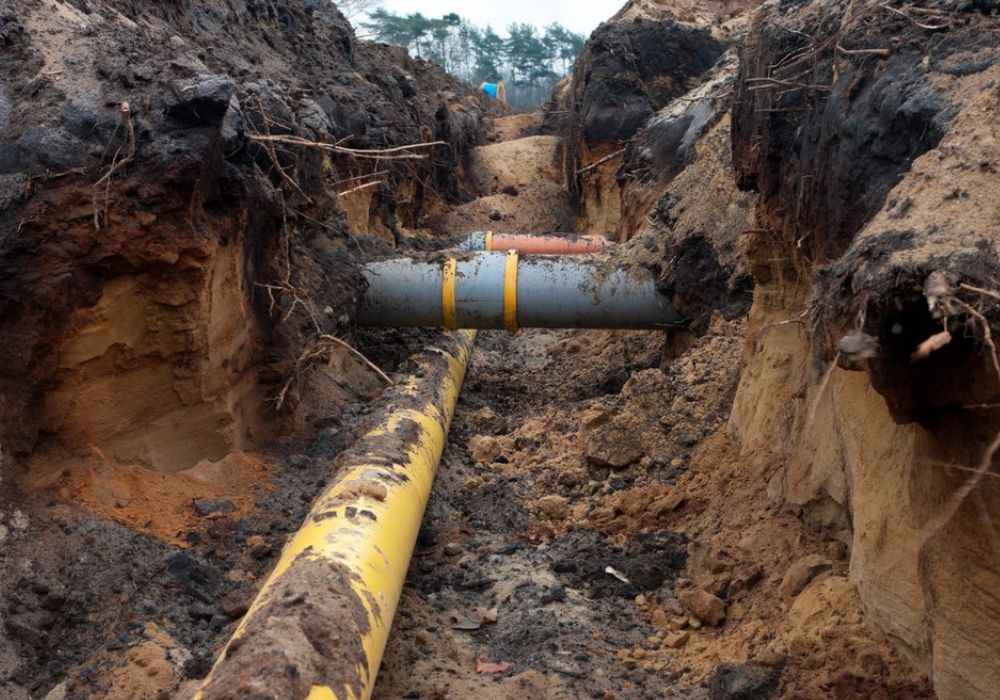Navigating Landlord Responsibilities and Tenant Rights
As a tenant, experiencing a sewage backup in your rental property can be a frustrating and potentially hazardous situation. The stench, mess, and health concerns associated with such an event can significantly impact your quality of life. Understanding your landlord’s obligations and your rights as a tenant is crucial in ensuring a prompt and satisfactory resolution. In this comprehensive guide, we will delve into the legal timelines and responsibilities surrounding sewage backup repairs, empowering you to navigate these challenges effectively.

Image: www.allinfohome.com
Understanding Legal Timelines
In most states, the landlord has a legal obligation to repair sewage backups and other plumbing issues within a reasonable timeframe. What constitutes “reasonable” varies depending on the severity of the issue and the applicable local laws.
Typically, landlords are expected to address:
-
Emergency repairs: Issues that pose an immediate threat to health or safety, such as a burst pipe or overflowing sewage, should be repaired within 24-48 hours.
-
Non-emergency repairs: Less urgent issues, such as a slow drain or a leaking faucet, may have a longer repair window of up to 7-14 days.
It’s important to note that these timelines are not absolute and can be influenced by factors such as the landlord’s schedule, availability of repair personnel, and the extent of the damage.
Landlord Responsibilities
Landlords are generally responsible for maintaining the property in habitable condition, which includes ensuring proper plumbing and sanitation systems. This responsibility includes repairing sewage backups and any underlying issues causing the problem.
Specific landlord responsibilities may include:
-
Diagnosing the cause of the sewage backup: This may involve inspecting the plumbing system, checking for blockages or leaks, and determining the extent of the damage.
-
Hiring a qualified plumber: Landlords are responsible for selecting a licensed and experienced plumber to perform the repairs.
-
Covering the costs of repairs: Landlords are typically responsible for the costs of materials, labor, and any necessary permits required for the repairs.
-
Communicating with tenants: Landlords should keep tenants informed about the progress of the repairs and provide regular updates.
-
Ensuring tenant safety: Landlords are also responsible for ensuring that the property is safe for tenants to occupy during and after the repairs.
Tenant Rights
As a tenant, you have certain rights when it comes to sewage backups and repairs. These rights may include:
-
The right to habitable conditions: You have the right to live in a property that is clean, sanitary, and free from health hazards, including sewage backups.
-
The right to timely repairs: Landlords are obligated to repair sewage backups within a reasonable timeframe.
-
The right to deduct repair costs from rent: In some states, tenants may be able to deduct the costs of emergency repairs from their rent if the landlord fails to fix the issue promptly.
-
The right to seek legal remedies: If your landlord fails to fulfill their repair obligations, you may have the right to file a complaint with the relevant authorities or take legal action.
![How Long Does Landlord Have to Fix Heat? [Answered With Tips on What to Do]](https://renterlifestyle.com/wp-content/uploads/2023/03/Untitled-design-2023-03-19T211424.811.jpg)
Image: renterlifestyle.com
How Long Does A Landlord Have To Fix Sewage Backup
Steps to Take When Facing a Sewage Backup
If you encounter a sewage backup in your rental property, it’s important to follow these steps:
-
Notify your landlord immediately: Report the issue in writing or via email, providing a clear description of the problem.
-
Document the problem: Take photos or videos of the sewage backup and any damage it has caused.
-
Keep a record of contact: Document all communication with your landlord regarding the issue, including phone calls, emails, and text messages.
-
Consider emergency repairs: If the sewage backup poses an immediate threat to your health or safety, you may need to contact an emergency plumber. Keep all receipts and invoices for any expenses incurred.
-
Protect your health: Avoid contact with contaminated water and keep the area well-ventilated to prevent the spread of bacteria.
-
Contact local authorities: If your landlord fails to address the issue promptly, you may consider contacting your local health department or code enforcement agency.
By understanding your rights and responsibilities, and by proactively advocating for your well-being, you can ensure that sewage backups are resolved promptly and effectively, preserving a safe and healthy living environment.